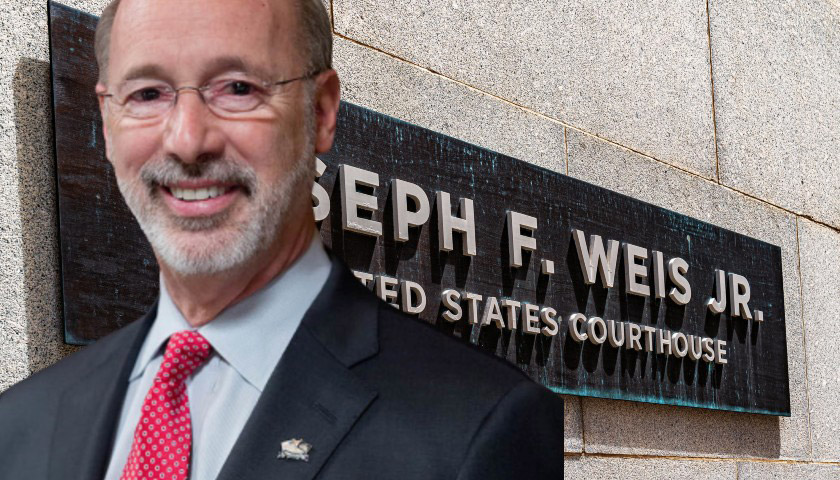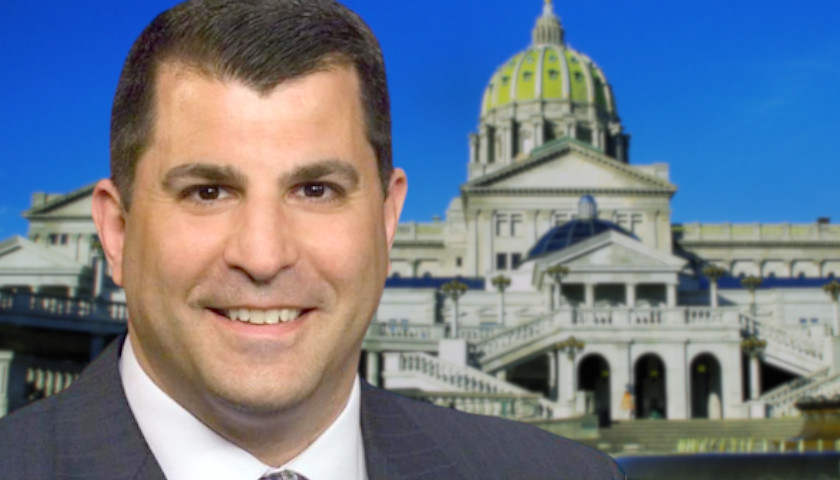by Dave Lemery
A federal judge on Monday threw out portions of the Wolf administration’s orders that restricted activity during the coronavirus pandemic, saying that the governor had exceeded his authority.
The ruling by Judge William Stickman in the Western District of Pennsylvania court delivers to Gov. Tom Wolf’s political opponents what they had failed to achieve for months in the Legislature as bill after bill to curtail the governor’s power was passed, only to be vetoed.
Specifically at issue were the administration’s orders closing “non-life-sustaining businesses” and restricting the size of gatherings. In his ruling, Stickman said that while the administration’s restrictions were well intended, they violated the First and 14th Amendments of the U.S. Constitution.
“However, good intentions toward a laudable end are not alone enough to uphold governmental action against a constitutional challenge,” he wrote in his ruling. “Indeed, the greatest threats to our system of constitutional liberties may arise when the ends are laudable, and the intent is good – especially in a time of emergency.”
Stickman wrote that liberties relinquished in times of crisis may be difficult to restore after the emergency has passed, leaving courts with the challenge of interpreting whether emergency measures have gone too far.
He wrote that the limit on the size of gatherings violated the right of assembly guaranteed by the First Amendment, the stay at home and business closing orders violated the due process clause of the 14th Amendment, and the business closures also violated the equal protection clause of the 14th Amendment.
The judge noted that while many of the restrictions have since been lifted as the state implemented its reopening plan, the Wolf administration had reserved the authority to reimpose them if the COVID-19 crisis showed signs of worsening again.
Among the plaintiffs in the case were several counties, a number of businesses, and individuals, including U.S. Rep. Mike Kelly and state Reps. Daryl Metcalfe, Marci Mustello and Tim Bonner. Stickman, in his ruling, excluded the county plaintiffs, saying they were excluded from bringing claims of constitutional violations.
Stickman wrote that the scope and scale of the Wolf administration’s orders was unprecedented in American history. He said the state had cited a similar response to the Spanish flu outbreak about 100 years ago, but he insisted that the orders issued at that time were not comparable.
“While, unquestionably, states and local governments restricted certain activities for a limited period of time to mitigate the Spanish Flu, there is no record of any imposition of a population lockdown in response to that disease or any other in our history.”
He had similar concerns about the business closure orders, saying there was no action like it to compare to in the nation’s history.
“Never before has the government exercised such vast and immediate power over every business, business owner, and employee in the Commonwealth,” he wrote. “Never before has the government taken a direct action which shuttered so many businesses and sidelined so many employees and rendered their ability to operate, and to work, solely dependent on government discretion.”
Ultimately, Stickman wrote, individual liberty may not be made subordinate to a momentary crisis.
“The Constitution cannot accept the concept of a ‘new normal’ where the basic liberties of the people can be subordinated to open-ended emergency mitigation measures,” he wrote. “Rather, the Constitution sets certain lines that may not be crossed, even in an emergency. Actions taken by Defendants crossed those lines. It is the duty of the Court to declare those actions unconstitutional.”
– – –
Dave Lemery is a regional editor for The Center Square.
Photo “Pittsburgh Federal Courthouse” by Tony Webster CC2.0






EVERYTHING that violates or infringes on any RIGHT in the Bill of Rights should be ruled null and void.
This is good news, I am sure the ruling will be appealed. Arbitrary rules applied differently throughout the nation and changed on a whim by those that imposed them. People should be able to decide what risks they want to take including the businesses that have suffered greatly under these authoritarian orders.